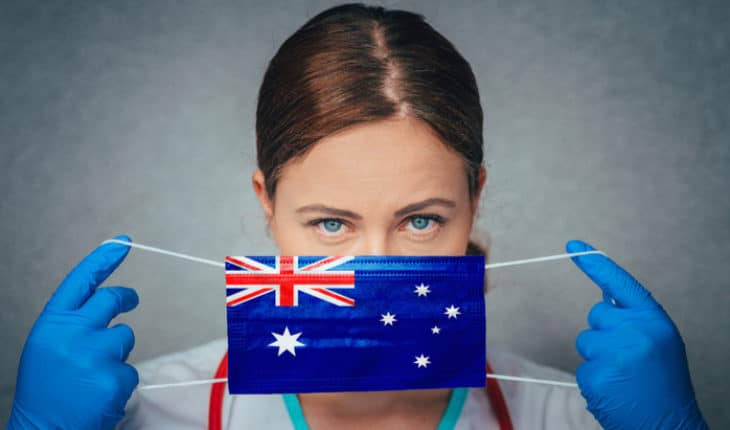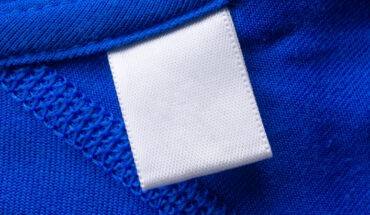CSL to manufacture and supply University of Queensland and Oxford University vaccine candidates for Australia
- Heads of Agreement signed between CSL and the Australian Government to supply 51 million doses of University of Queensland vaccine to Australia, with first doses scheduled for release from mid-2021 following successful clinical trials.
- Heads of Agreement signed between CSL and AstraZeneca for the expected manufacture of approximately 30 million doses of the Oxford University vaccine candidate AZD1222, for supply to Australia with first doses scheduled for release early 2021, following successful clinical trials.
- Funding Deed with the Australian Government and CSL to ready its facilities for the manufacture of the AZD1222 vaccine candidate, and provide an additional COVID-19 vaccine option for Australians.
CSL Limited (ASX:CSL) today announced it has signed a Heads of Agreement (HoA) with the Australian Government for the supply of 51
million doses of the University of Queensland’s (UQ) COVID-19 vaccine candidate (V451), and a separate HoA with AstraZeneca to manufacture the Oxford University candidate (AZD1222), should clinical trials of both prove successful.
University of Queensland – CSL vaccine candidate (V451) Agreement with Australian Government: The total number of vaccines ordered by the Government is based on a two dose per person regime. Upon completion of successful clinical trials, CSL expects the first tranche of doses to be available by mid-2021.
CSL CEO & Managing Director Paul Perreault said, “The social and economic impact of the COVID-19 pandemic has brought a high level of urgency to the task of developing a vaccine against the SARS-CoV-2 virus, and to manufacture a successful vaccine at high quality and in sufficient quantities.
“CSL has been working at pace to respond to the pandemic and has invested significant resources in the rapid development and large-scale manufacture of UQ-CSL V451, along with a number of other therapeutic programs. Together with partners including the University of Queensland and Coalition for Epidemic Preparedness (CEPI), our development and manufacturing teams have been working extremely hard to advance this program to ensure the availability of a safe and effective vaccine should clinical studies prove successful,” he said.
The HoA is between CSL’s influenza vaccines company, Seqirus, who will hold regulatory responsibility as the marketing authorisation holder, and the Australian Government. Production of the vaccine to support late stage clinical trials has commenced at CSL’s biotech manufacturing facilities in Broadmeadows, Melbourne.
Results from the pre-clinical and early clinical studies for UQ-CSL V451 are promising; however, it is impossible to predict the level of success the candidate will have in late stage clinical trials.
“CSL’s focus is to produce a safe and effective vaccine. It is important that on completion of clinical trials, the public has confidence in UQ-CSL V451, which makes use of the well-established recombinant protein technology platform, and Seqirus’ proprietary adjuvant MF59®, which has an extensive safety track record in humans,” Mr Perreault said.
The University of Queensland is currently undertaking a Phase 1 clinical study on UQCSL V451 to assess safety and immunogenicity in healthy volunteers.
University of Queensland Vice-Chancellor Professor Deborah Terry said, “We are proud of the contributions that UQ researchers have been making in response to the COVID19 pandemic”. “UQ has a reputation for transitioning its innovations and discoveries to delivering
solutions for the world’s challenges. Federal and Queensland governments, philanthropists and donors, a multitude of research collaborations and particularly our remarkable partnership with CEPI and CSL have made our accelerated timeline possible. And we are grateful to the Queenslanders who have stepped up for our Phase 1 trials, with an overwhelming response to our recent call for volunteers aged 56 and over.”
Should the Phase 1 study prove to be successful towards the end of this year, CSL will take full responsibility for the subsequent Phase 2b/3 clinical trial, which is expected to commence in late 2020.
Oxford/Astra Zeneca (AZD1222) Vaccine Manufacture Agreements CSL has completed a comprehensive assessment of its capabilities and has agreed with AstraZeneca to manufacture approximately 30 million doses of the AZD1222 vaccine candidate, with first doses planned for release to Australia early next year. AZD1222 requires a two dose per person regime. CSL will manufacture the vaccine from its
Australian facilities and schedule production around the UQ-CSL V451 manufacture, as well as manufacture of the company’s vital core therapies.
Expanding Australia’s COVID-19 Vaccine Manufacturing Readiness The Australian Government will provide funding to support CSL’s readiness to manufacture AZD1222, thus expanding Australia’s on-shore COVID-19 vaccine manufacturing capabilities. This funding will be used to establish at-risk components required to produce the commercial manufacture of a recombinant vector-based COVID19 vaccine, including the acquisition of specialised equipment, recruitment, training and redeployment of personnel and retooling and reconfiguration of existing manufacturing facilities to current Good Manufacturing Practice standards.
AstraZeneca has established a separate commercial arrangement with the Australian Government to supply the AZD1222 vaccine to Australia once it successfully completes clinical trials.
Successful manufacture and supply of AZD1222 under contract to AstraZeneca is subject to Australian regulatory approval. CSL’s CEO and Managing Director Paul Perreault said, “We are pleased that we can produce the AZD11222 without compromising the production of our core products – influenza vaccines and plasma and recombinant protein therapies – and provide a second option for a COVID-19 vaccine candidate to Australia.
“Acknowledging that CSL is the only company in Australia with manufacturing facilities capable of producing this vaccine, we thank the Australian Government for their support, ensuring Australia has access to onshore COVID-19 vaccine production and supply. Our facilities will require modifications in order to fulfil the compliance requirements for working with vector-based vaccines, as well as the addition of skilled personnel and further capital investment.
“While there are still a number of milestones to be met, we are hopeful that by next year we’ll be in the fortunate position of having a vaccine candidate to support Australia and the world’s emergence from this crisis.
“CSL’s history is linked with a commitment to Australia’s public health needs. In 1918 we produced a vaccine for the Spanish influenza pandemic; in 2009 we developed a vaccine for the swine flu pandemic, and now we are incredibly proud to use our skills, technology and facilities to help ensure Australia – and the world – can access a COVID19 vaccine,” Mr Perreault said.
- The da Vinci 5 Robot Is Set To Transform Bariatric Care: - 31st March 2025
- Beyond money: the hidden drivers fuelling child food insecurity - 31st March 2025
- Tobacco and Vapes Bill - 31st March 2025






